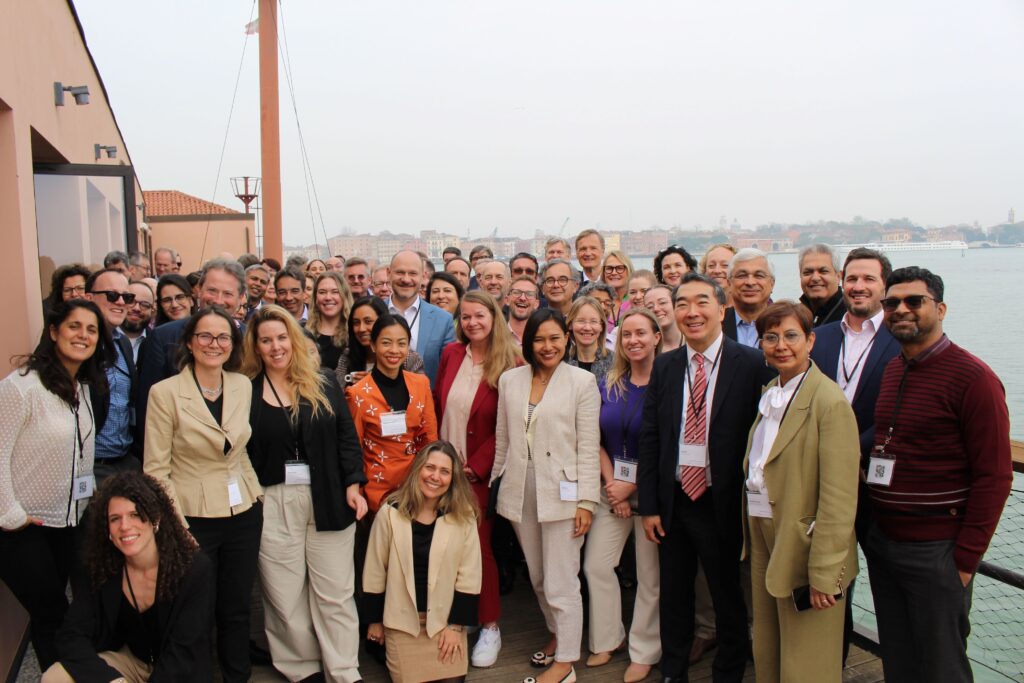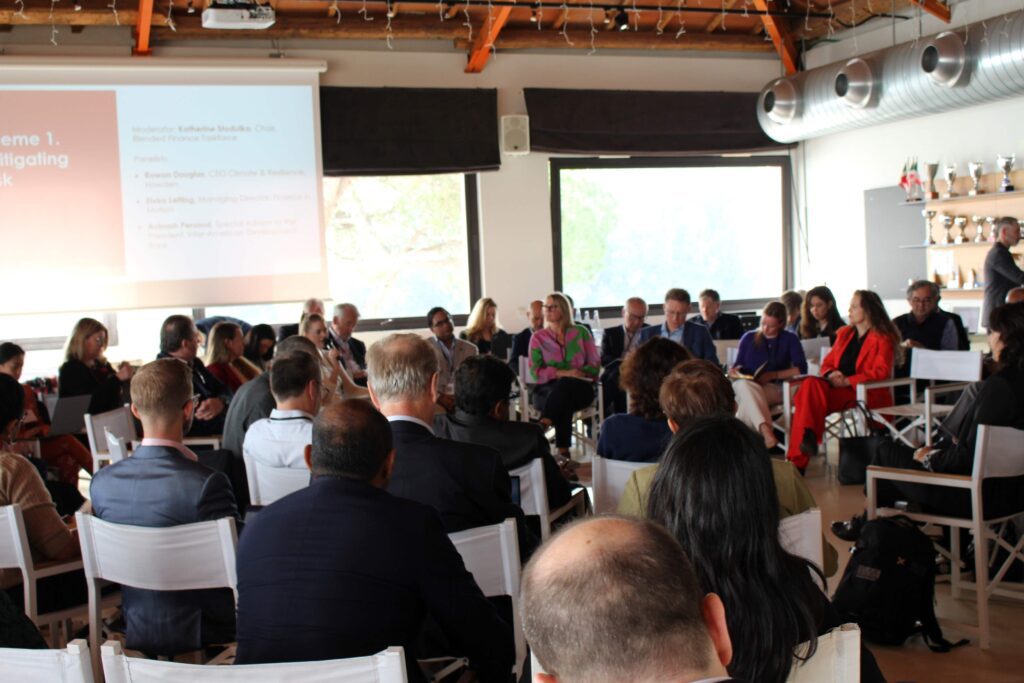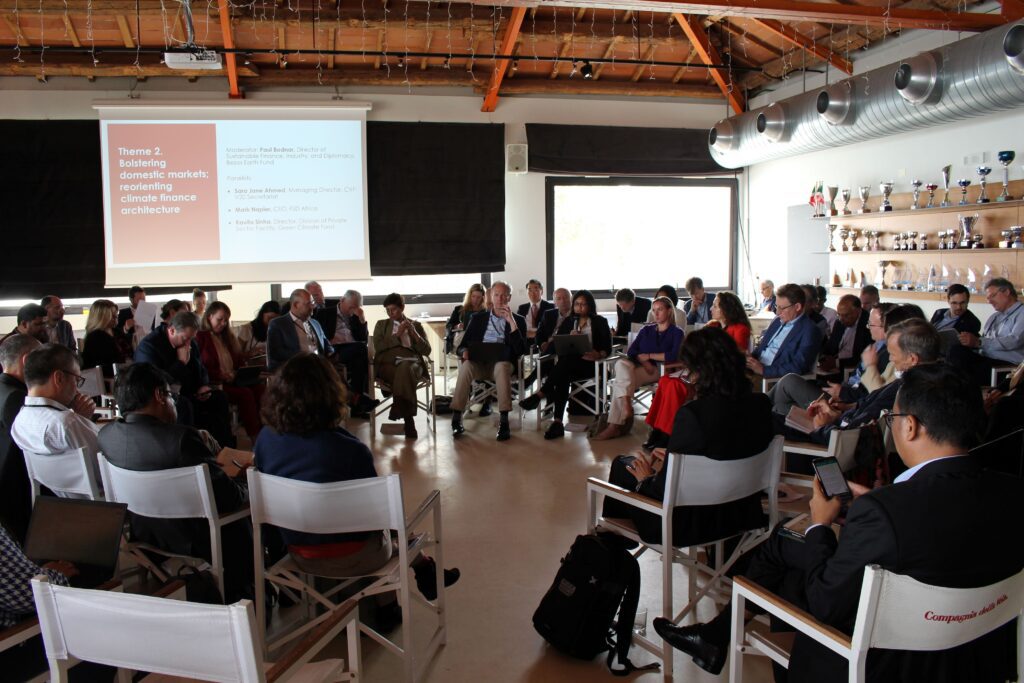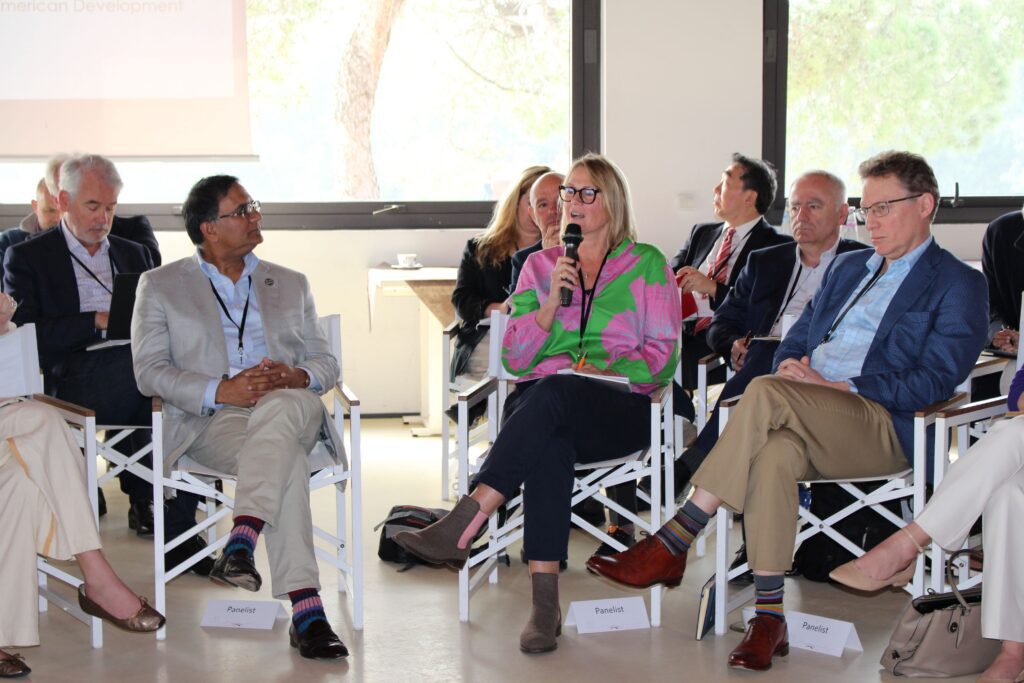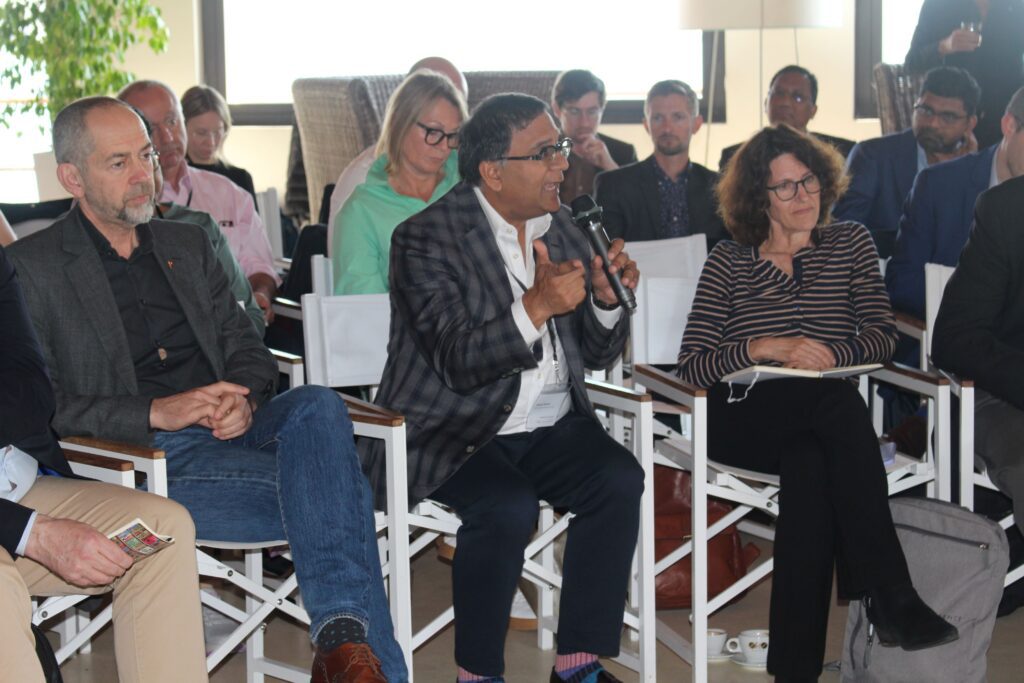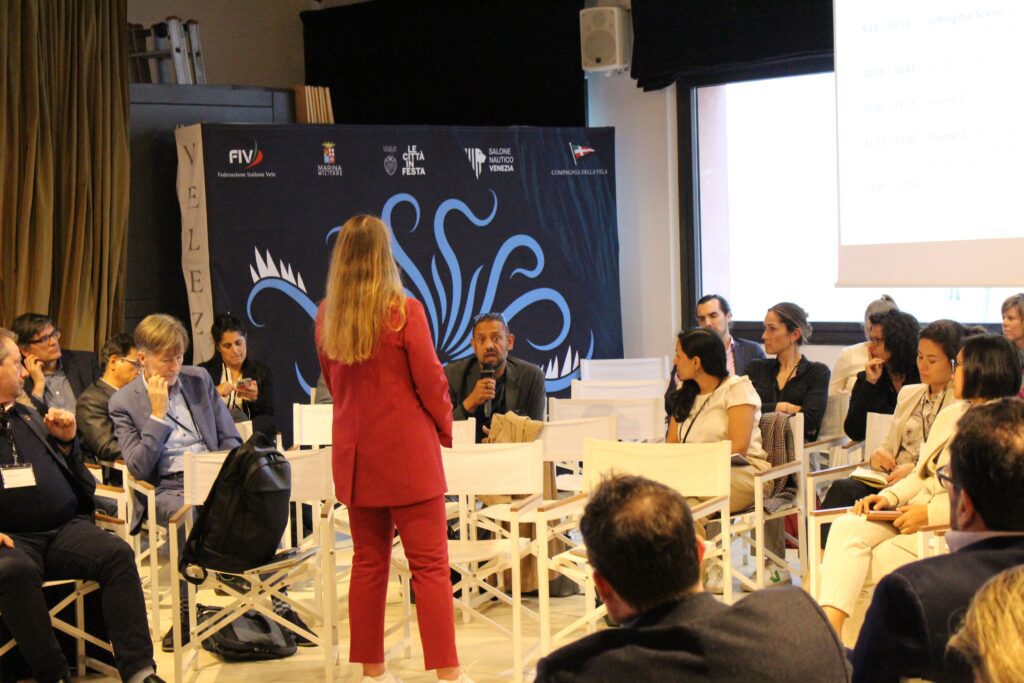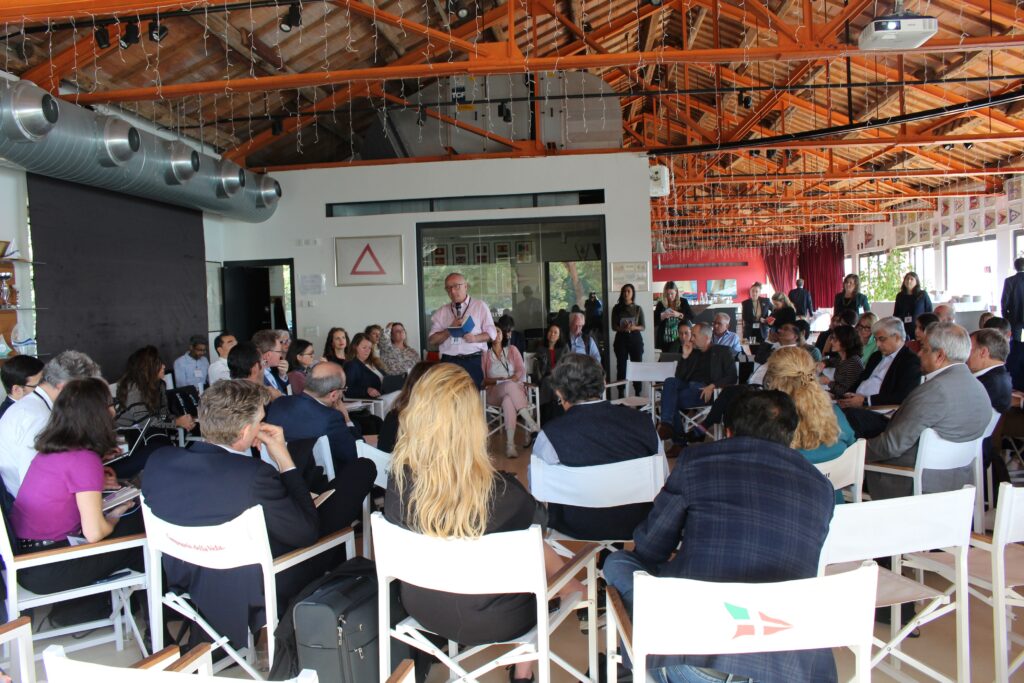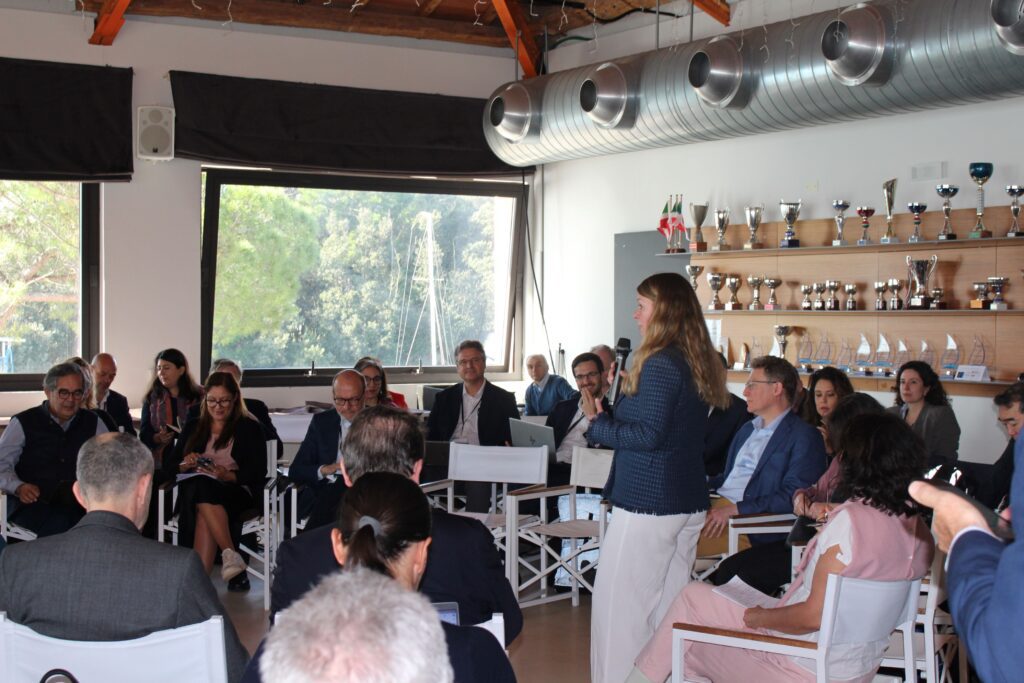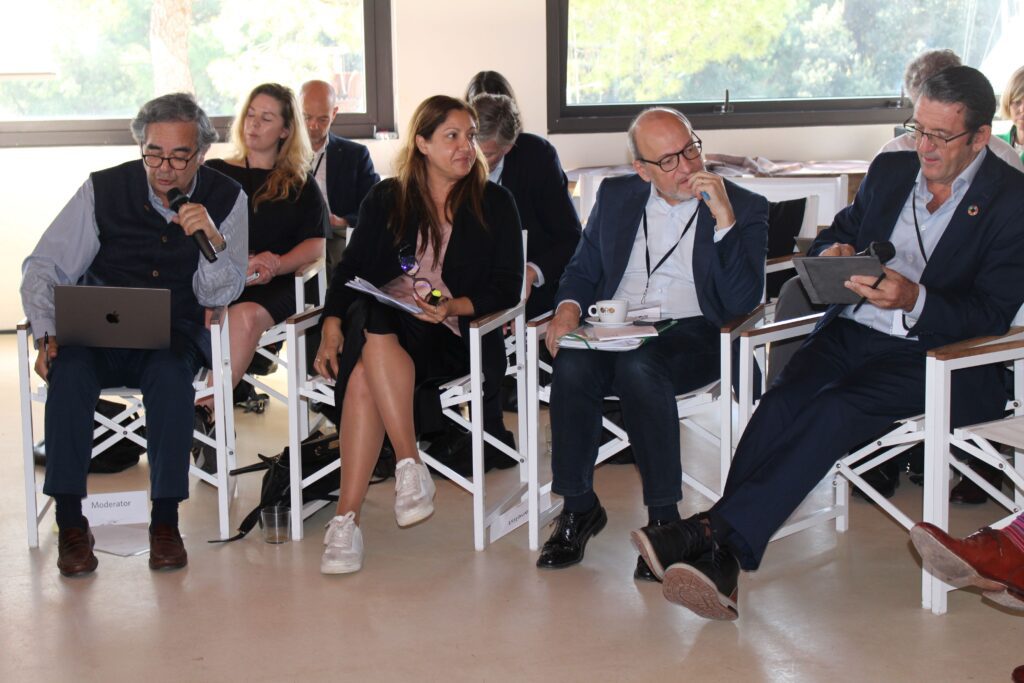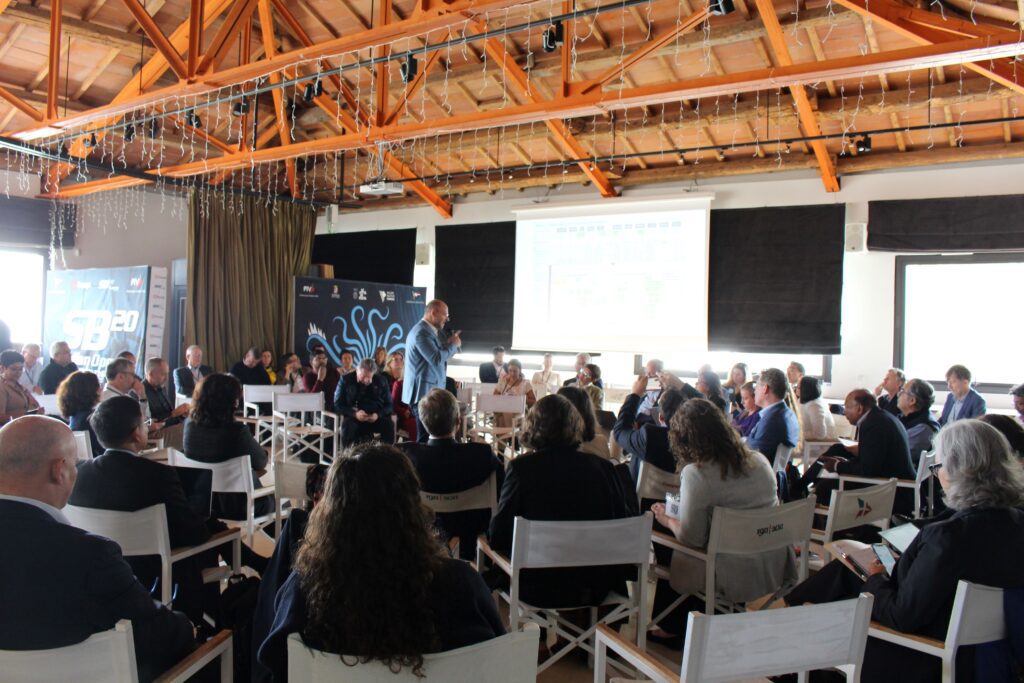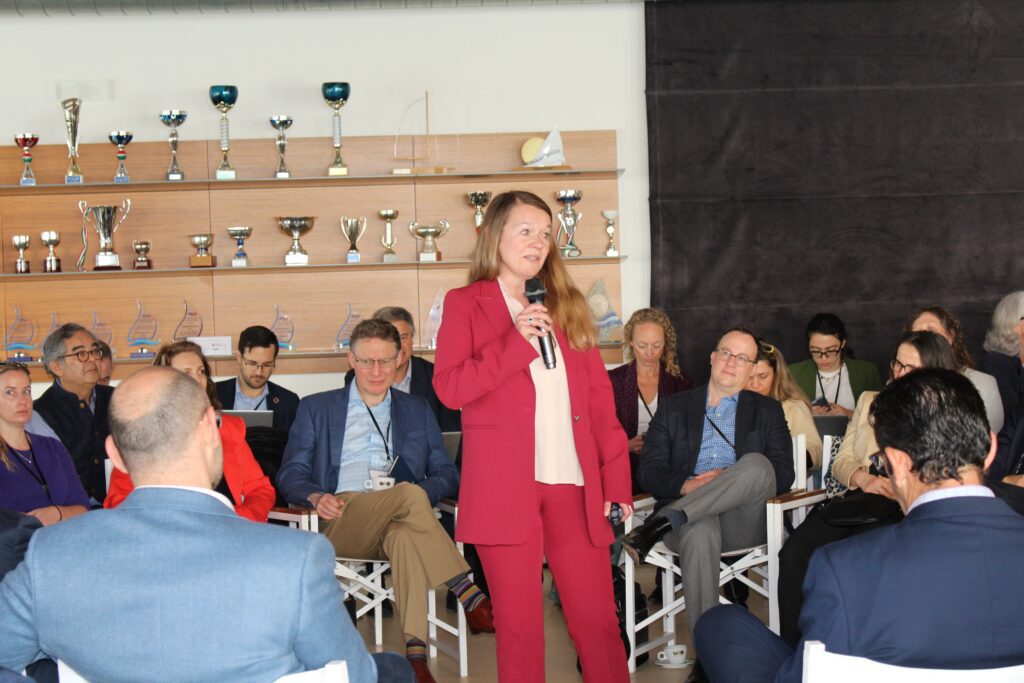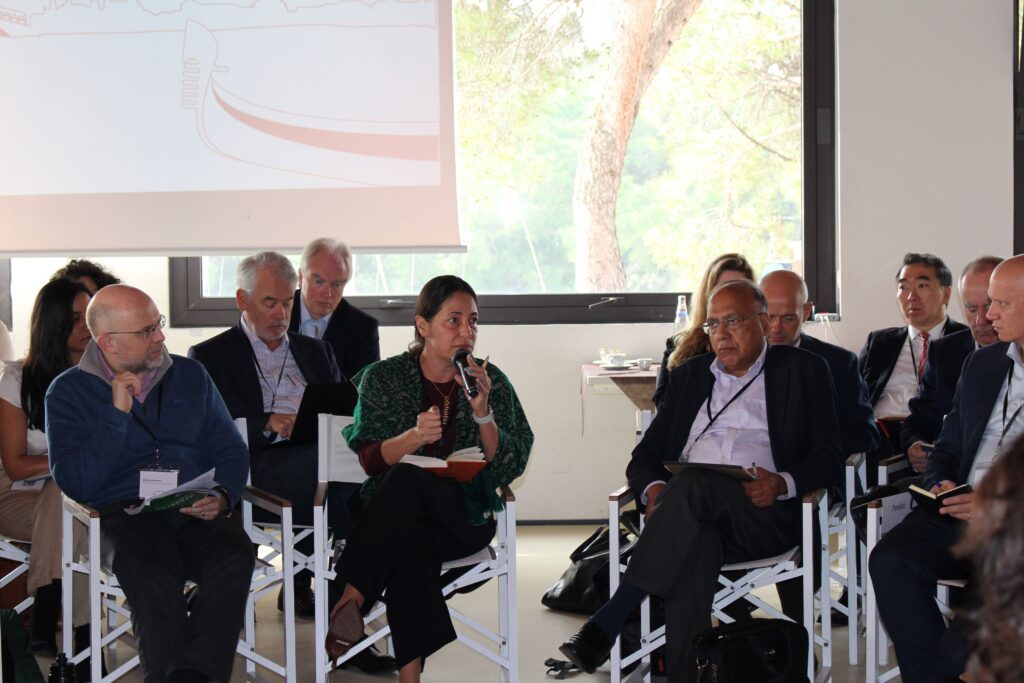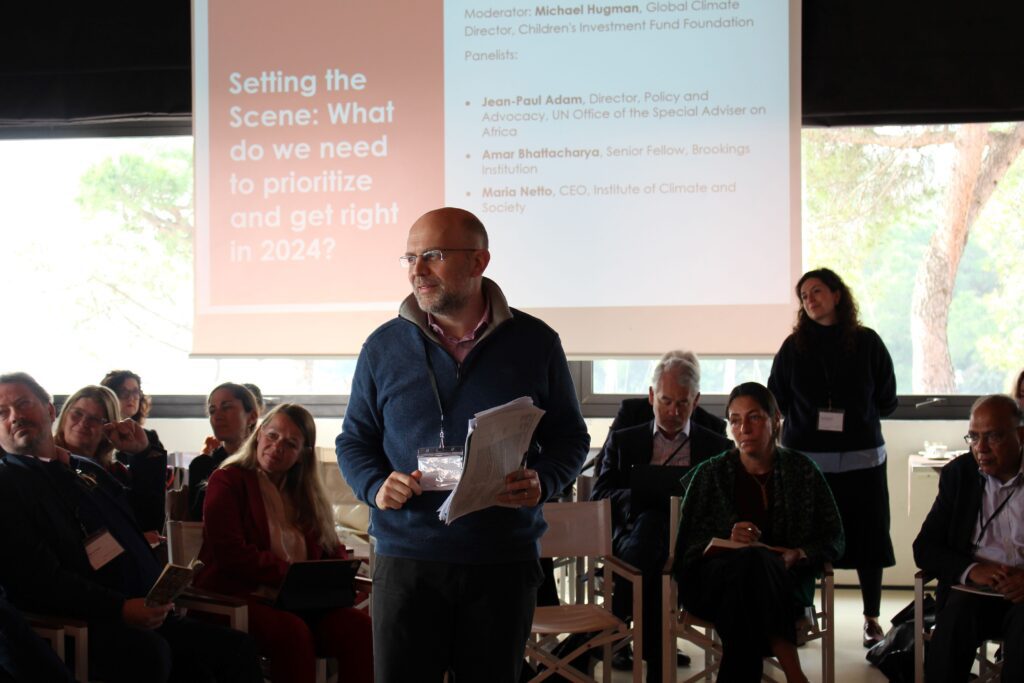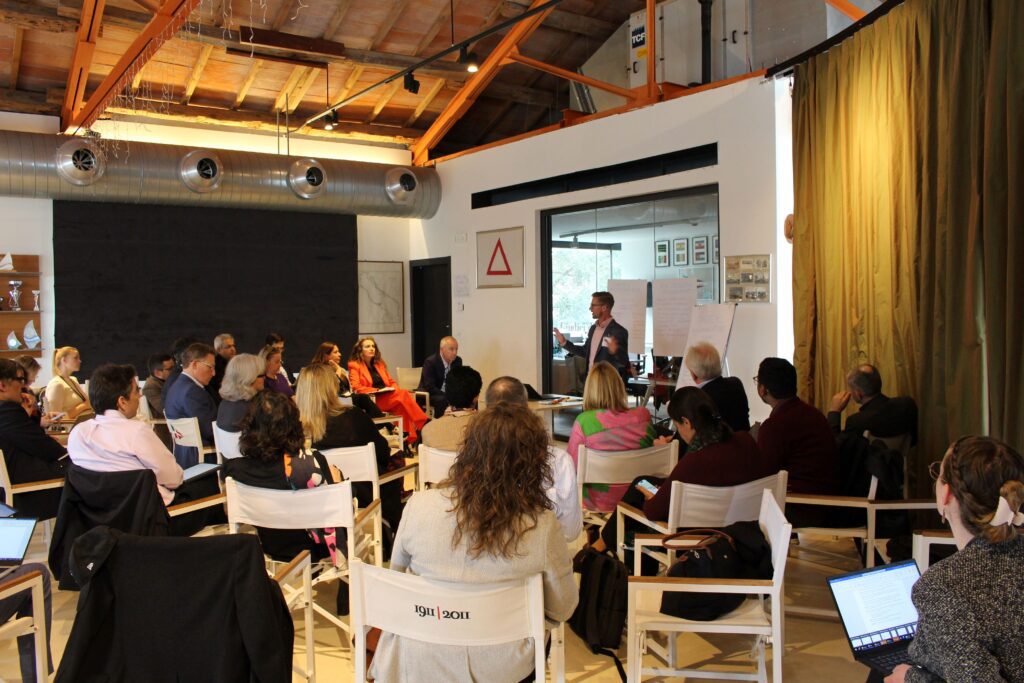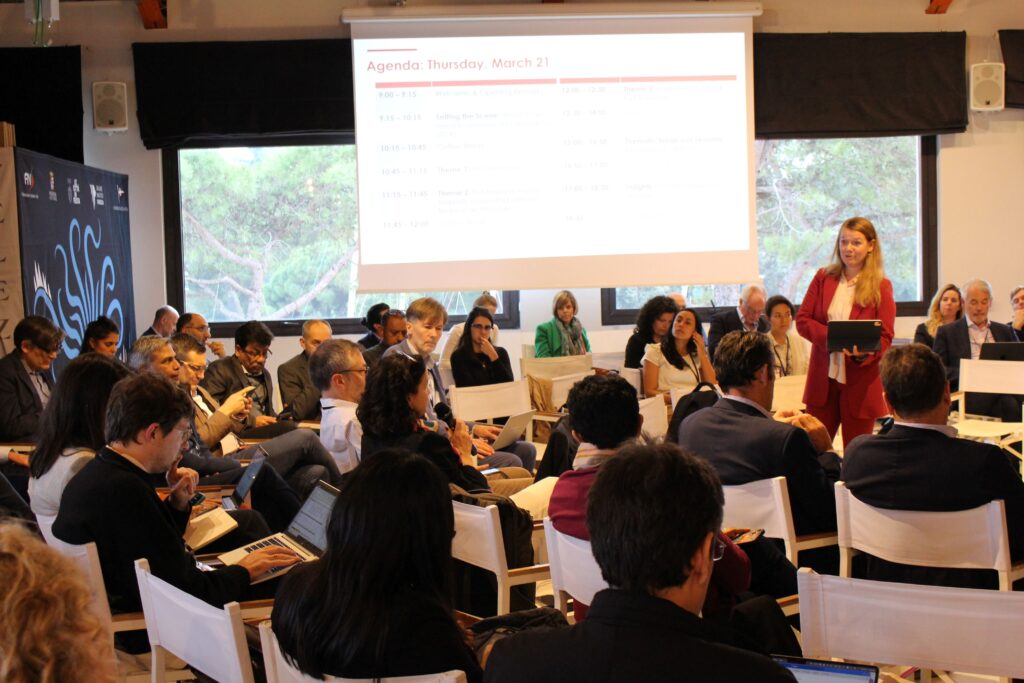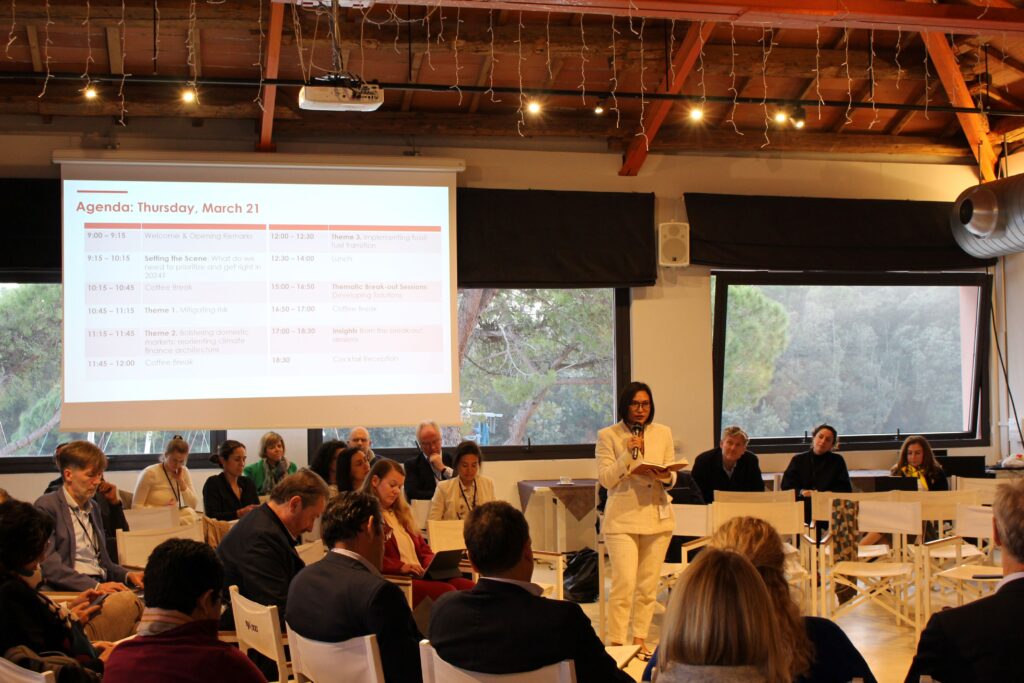Mobilizing Capital for a Just and Resilient Global Transition
The San Giorgio Group convenes key financial institutions and pivotal leaders who are actively engaged in climate and sustainable finance. It prioritizes frank input, an orientation on solutions, and connecting diverse leaders to break down silos and accelerate execution.
In 2024, our community needs to increase collaboration and coordination, as the challenge of competing economic, political, and institutional forces threaten to forestall the recent momentum we’ve made in mainstreaming climate finance. We now need to focus on delivering.
Agenda
Thursday, 21 March 2024
9:00 – 9:15 | Welcome and Opening Remarks
Barbara Buchner, Global Managing Director, Climate Policy Initiative
9:15 – 10:15 | Setting the Scene: What do we need to prioritize and get right in 2024?
SGG10 will open with an interactive discussion that will provide focus to this year’s meeting. With an increasingly uncertain global macroeconomic environment and growing complexity within climate policy and finance—as more actors, agendas, and initiatives engage with climate issues—how can we build on existing efforts across the ecosystem and deliver the most impact in the near term? How can we uncover differences, align priorities, and develop a roadmap that connects parallel processes, defines concrete milestones, and identifies who can lead the various priority areas?
10:45 – 12:30 | Thematic Deep Dives. Key Challenges and Opportunities to Drive Ambition
Based on input from San Giorgio Group members, this year’s meeting will focus on the following key themes:
- Mitigating risk
- Bolstering domestic markets
- Implementing fossil fuel transition
We will look at various priority sectors and themes, including nature, across the deep dives.
The first half of the day will introduce each of these topics in detail. After lunch, we will form breakout groups to develop and prioritize suggested solutions that can be delivered in the near term for each thematic agenda.
10:45 – 11:15 | Theme 1. Mitigating risk
While it is well understood that mitigating risks is key to unlocking flows from the savings pools and capital markets in the Global North, deploying a more unified approach is critical to scaling near-term climate finance. This includes not just different types of instruments (like guarantees), but also different types of financial product providers (including insurance) that work in tandem rather than offering discrete products.
Key considerations for discussion will include:
- What systemic shift is needed in how we think about risk—financial and physical. How can more comprehensive solutions be deployed to better address the rising cost of capital for projects in developing economies?
- Is there a global risk mitigation toolkit that could be delivered to unlock finance and deliver transformational change?
- In the context of rising interest rates and more attractive (less risky) alternative investments in the Global North itself, is it realistic that sufficient concessional funds will be available to de-risk enough investment in developing economies?
11:15 – 11:45 | Theme 2. Bolstering domestic markets; reorienting climate finance architecture
Bolstering domestic capital markets and local climate finance capacity is critical to achieving long-term climate and development goals. Domestic savings can be channelled to projects without the challenge of FX risk, and domestic institutions — whether commercial banks, dedicated green banks or public development banks — can act as local intermediaries for both domestic and international climate investment. But such transformation must be met with an international climate finance architecture to that can support and interact with domestic institutions. This panel will explore both challenges and solutions to energizing domestic markets in order to achieve our climate finance goals.
Key considerations for discussion will include:
- How can domestic capital markets in developing countries be expanded and strengthened to mobilize climate finance? How can the development of green banks or other types of (specialized) public development banks catalyze domestic private savings and public funds for climate finance?
- What is the balance between incentives and mandates or regulation in directing domestic savings towards climate mitigation and adaptation projects? What push and pull tools are needed to achieve this balance?
- What are the connection points between the international financial architecture and domestic capital markets, and how can the IFIs most effectively support domestic climate finance?
12:00 – 12:30 | Theme 3. Implementing fossil fuel transition
COP28 signaled global commitment to transition away from fossil fuels and universal agreement, if not the detail, on the need for a comprehensive finance package to underpin that action. But country-level climate goals are currently off track, and many countries are skeptical about their ability to raise climate ambition, due to the series of exogenous shocks that have triggered fiscal constraints for all and a debt crisis for many.
Key considerations for discussion will include:
- Is it possible to identify elements of country platforms (a la JETPs), attempts to tap (voluntary) carbon markets, and impact of alliances (like GFANZ’s work and PPCA) that can be magnified and multiplied?
- Given political pressure on commercial banks to back off their commitments to not fund fossil fuels and the addiction of countries to fossil fuel subsidies, what policy and regulatory actions are needed to implement a transition away from fossil fuels?
14:00 – 16:00 | Thematic Break-out Sessions: Developing Solutions
Each group will be tasked with amplifying the morning’s discussion to develop an “SGG agenda” for each theme, including:
- What needs to be achieved in 2024 to progress this topic?
- What are the near-term solutions for achieving these needs and what are the critical challenges preventing these from being achieved?
- Who needs to be involved and what do we need to do to overcome those challenges and reach the stated 2024 goals?
- What needs to happen in the lead up to COP30?
Friday, 22 March 2024
9:30 – 10:00 | Welcome to Day 2: Turning Ideas into Action
We will review the summaries and ideas generated from Day 1, so everyone is equipped to discuss concrete next steps.
Vikram Widge, Senior Advisor, Climate Policy Initiative
10:00 – 12:00 | Plenary: From Big Picture to the San Giorgio Group Agenda
What are the key takeaways from yesterday’s work? How do these themes and roadmaps connect with the big picture needs for climate finance in 2024? How can we concretely build on existing efforts/agendas/structures to minimize duplication, increase momentum, and accelerate execution times?
Is the emerging SGG Agenda an appropriate and practical roadmap to deliver for each theme in 2024? Where can the San Giorgio Group make the most impact; what is its added value? How can we move forward with integrity and accountability? What is needed to measure progress? Who else do we need to include to ensure progress in 2024?
12:15 – 12:30 | Summary
We will close the meeting with a summary of the discussion, next steps, and review of key priorities and commitments we will all take back with us.
Barbara Buchner, Global Managing Director, Climate Policy Initiative
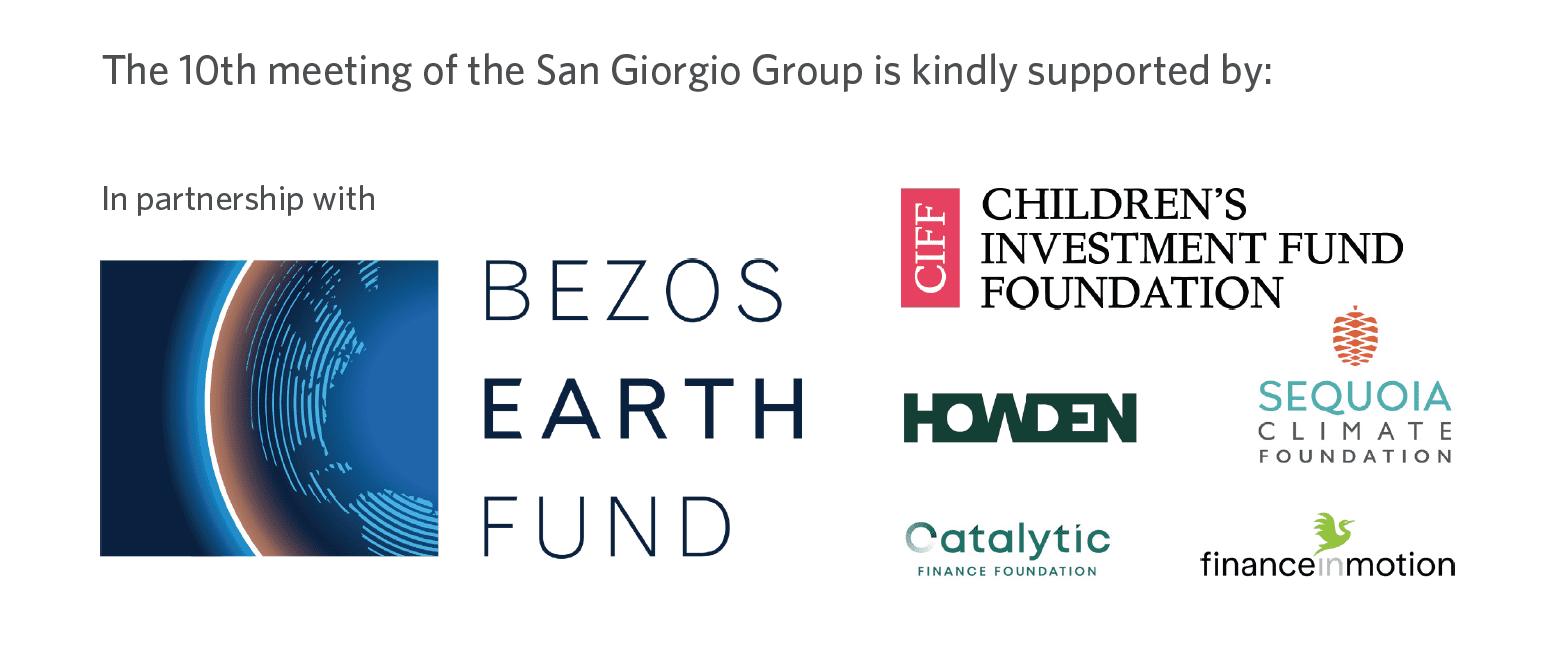
Photos from the meeting
